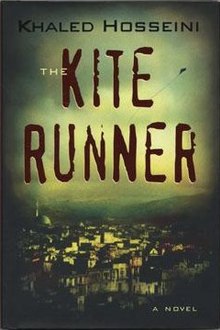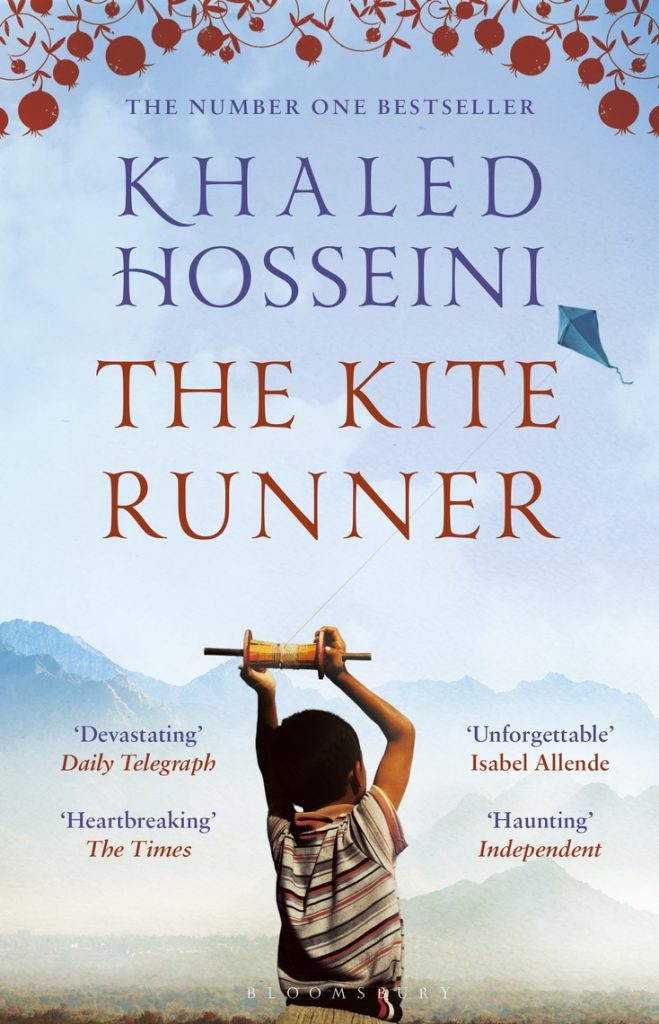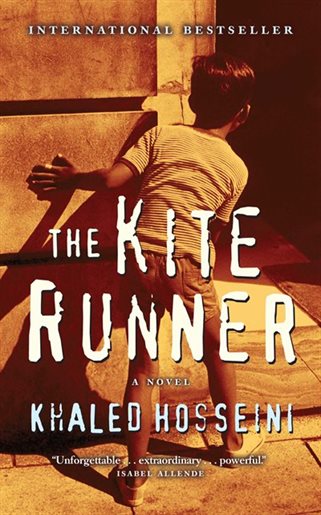Published in 2003 by Riverhead Books, The Kite Runner is set Afghanistan during the Soviet military intervention and depicts the friendship between two young boys, Amir and Hassan. Hassan’s father works for Amir’s family and its part of the ethnic minority known as the Hazaras. Amir and Hassan grow up together and are close friends. After being seperated at a kite-flying tournament one day, Amir goes in search of Hassan, to find him being raped in an alley by a boy who has previously bullied them both. Amir pretends not to notice and does not intervene, gradually becoming overridden with guilt for his own inaction. Finding living with Hassan and his own guilt unbearable, Amir decides that either he or Hassan should leave. He frames Hassan for theft and Hassan and his father Ali, leave shortly after. Amir and Baba later escape the Soviet invasion and settle in Fremont, California, where Amir attends school and Baba works at a gas station.
Amir is contacted by an old friend from Kabul named Rahim Khan, who is sick and wants Amir to visit him. He tells Amir that Hassan and his wife Farzana, were shot by the Taliban, and their son, Sohrab, was sent to an orphanage. When Amir attempts to rescue Sohrab from the orphanage, he realizes that the Taliban official who is helping him locate Sohrab is Assef, the boy who raped Hassan. A fight ensues between Amir and Assef, and Amir and Sohrab manage to escape. Sohrab comes to with Amir in the U.S. but is very reserved and withdrawn due to his childhood trauma and sexual abuse at the orphanage, suffering from trauma-induced mutism. Amir takes Sohrab to a kite-flying tournament, where they win. The novel ends with Sohrab’s smile. The Kite Runner received the South African Booker Prize in 2004 and was voted the Reading Group Book of the Year in 2006 and 2007. A film adaptation of the novel was released in 2007. Additionally, the novel has been adapted to the stage in many countries, as well into to a graphic novel in 2011.
The Kite Runner has been on the American Library Association’s top ten lists for most challenged books in 2008 (for offensive language, sexually explicit material, and being unsuited to age group), in 2012 (for depictions of homosexuality, offensive language, religious viewpoints, sexually explicit), in 2014 (for offensive language, unsuited to age group, and violence), and again in 2017 for sexual violence and the fear that the novel would inspire terrorism and “promote Islam.” In 2017, the book was pulled from the curriculum in Gilbert, Arizona. The Hugley Unified School District informed teachers that the book would no longer be taught, but no reason was given as to why. That same year in Fishers, Indiana, a school board member protested to the inclusion of the novel in the AP Literature and Composition course when her daughter was assigned to read the novel.
Additionally, some Afghan-American readers have expressed discomfort with the portrayal of the Hazara as an oppressed minority. In an interview, Hosseini responded to this criticism by saying “They never say I am speaking about things that are untrue. Their beef is, ‘Why do you have to talk about these things and embarrass us? Don’t you love your country?”
About the Author
Khaled Hosseini was born in 1965, in Kabul Afghanistan. His mother taught Farsi and History, and his father was a foreign diplomat in the Afghan Foreign Ministry. The Foreign Ministry relocated their family to Paris in 1976. The family was granted political asylum in the United States after the Soviet invasion of Afghanistan and moved to San Jose, California in 1980. Hosseini graduated from Santa Clara University in 1988 with a bachelor’s degree in Biology. He then got his medical degree from the University of California, San Diego, School of Medicine in 1993. Hosseini began writing his first novel, The Kite Runner, while working as doctor. Since then has also written A Thousand Splendid Suns, And the Mountains Echoed, and Sea Prayer. In 2006, he was appointed a Goodwill Ambassador for UNHCR, the UN Refugee Agency. He also established The Khaled Hosseini Foundation, a nonprofit that aims to provide humanitarian assistance to those in Afghanistan. He currently lives in Northern California with his wife and two children.


